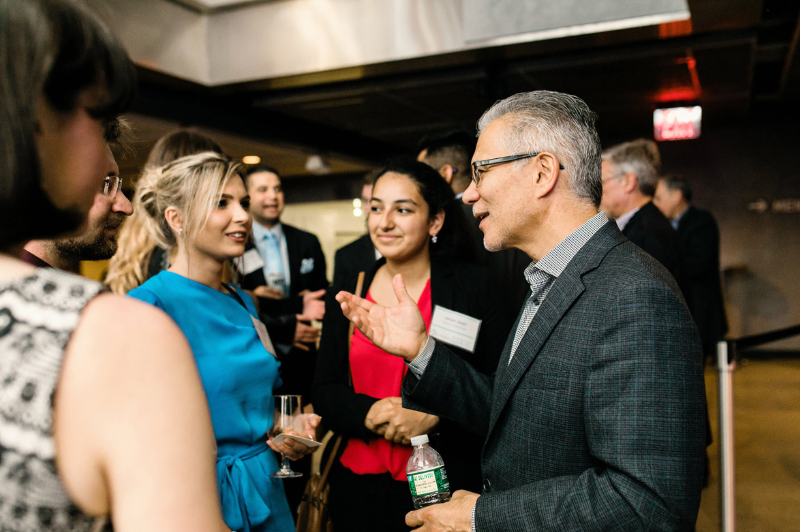In June, Marketing EDGE will host their fourth annual EDGE Awards, honoring leaders and “Rising Stars” in the marketing field. The New York-based nonprofit places itself in a unique position to bridge several areas in the field. As the organization’s primary fundraiser and flagship event, the EDGE Awards supports a full calendar of initiatives that benefit the marketing profession, following the mission “to educate, develop, grow and employ college students in the field of marketing.”
In terms of education, Marketing EDGE walks the walk. At the beginning of the year they conducted a three-day Professors Institute conference in Dallas, at SMU. Marketing EDGE also publishes leading academic research in the Journal of Interactive Marketing.
According to Marie Adolphe, Vice President of Program Development at Marketing EDGE, the Professors Institute provides the opportunity for early-career professors to communicate with top-level CMOs, data scientists and other professionals, in order to understand “the challenges and pain points of companies today.”
“Professors who are deeply immersed in data tools can give their input on what they think marketers can be doing,” said Adolphe. “And the professors can learn what is happening day-to-day at companies. We strongly believe that marketing is a two-way conversation, in research and day-to-day experience.”
One of the running themes in this dialogue is the speed at which the field is changing.
“Marketers are more tech-savvy today,” Adolphe stated. “This is an issue for employers and academics to consider as they prepare graduates for the marketplace.”
For students, access to knowledgeable researchers and experienced pros is essential to finding their way. At the Collegiate Summit and Student Career Forums perceptions about marketing careers are clarified, to the benefit of students and recruiters alike.
“In general, students who are drawn to marketing are drawn to the creative aspect,” Adolphe explained. “It often falls on us or professors to present the data-driven side of marketing. Undergraduates learn that it’s a data-driven field and that they must get comfortable burnishing their analytical skills.”
Typically, business students are more comfortable working with numbers. Many of those drawn to marketing early on, in Adolphe’s experience, associate marketing almost exclusively with advertising.
“Another challenge is that the tools change rapidly,” she added. “Many students aren’t at educational institutions where they would pick up those tools. So they don’t have to prepare on their own, that’s where Marketing EDGE comes in. We offer free resources to learn these tools, while also helping students get experiential learning and internships where they can develop those skills.”
Marketing EDGE will also hold a total of three Student Career Forums in 2019, in New York, Dallas and Chicago. The half-day conference in New York welcomes over 250 students from the Tri-state area. The organization aims to draw students from the host college, as well as area schools. Additionally, they attempt to attract analytical business students who aren’t yet on the marketing track.
If it sounds like the rapidly changing tech-driven field is difficult to scale for college students and graduates, the students cultivated by Marketing EDGE are up to the challenge.
“When looking at student resumes, I’m so glad I’m not graduating with these students,” Adolphe said. “They are so accomplished. They also have an inherent understanding of the tools being used, something maybe some of their senior colleagues might not have.”
Adolphe points out that digital natives have grown up using channels heavily traveled by marketers.
“For the first time in history, business tools are also consumer tools,” she said. “Students understand these tools in a whole different way. They maybe don’t know the business case for the tools, but understand how they are used by consumers. And they’re able to bring that insight to the workplace. Also, they are wonderfully entrepreneurial, which is a big difference than generations in the past. They have the spirit that they can do anything, and they probably can. We hear that from companies with a young workforce.”








